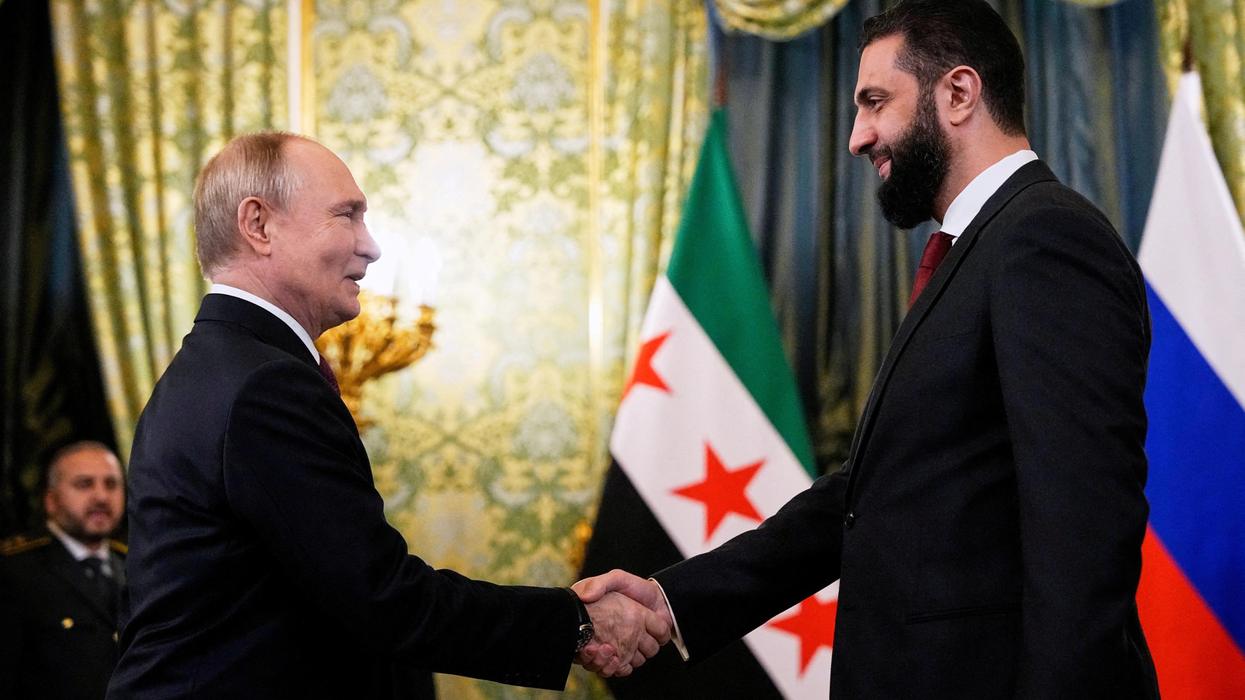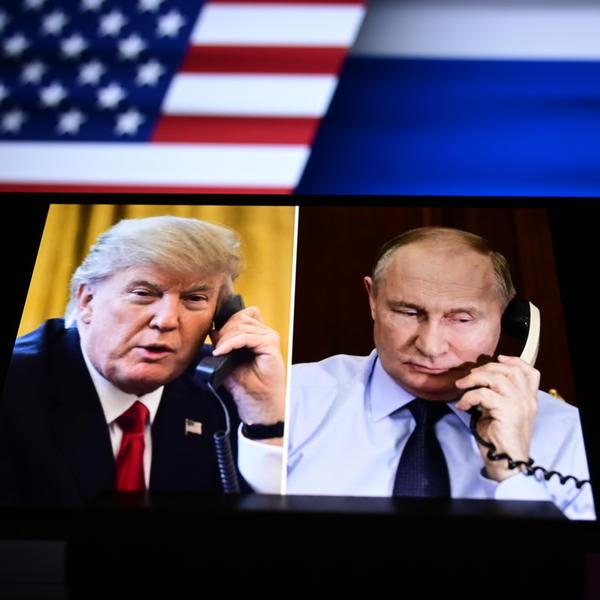The Biden administration’s decision to withdraw U.S. troops from Afghanistan is a wise and morally courageous one. It refuses to inherit and continue a disastrous American tradition in foreign and security policy: the obsession with defending meaningless U.S. “credibility” (aka prestige), irrespective of real national interests and of the cost in American lives and money.
Previous U.S. “strategy” in Afghanistan was a kind of zombie policy: in reality dead, but still walking around because nobody in Washington could bring themselves to bury it.
The obsession with mortal threats from Russia is a zombie dating back to the Cold War, and should have been buried when that struggle ended. It is a terrible pity that Biden cannot break with this obsession, and also with a bipartisan belief in sanctions as a way to bludgeon other countries into subservience to America’s will, instead of getting them to compromise on shared vital interests.
Biden has stated that the new sanctions against Russia announced today have been imposed for three reasons — and all three of them are wrong.
The Solarwinds hack (which it does seem was most probably the work of Russia) is widely described as an “attack.” It wasn’t. No U.S. institutions or infrastructure were attacked. It was an espionage operation in cyberspace, of a kind that the United States has openly acknowledged carrying out against Russia and other states. All major states conduct this kind of espionage, and it has never previously been made a cause of sanctions. The Biden administration is therefore introducing a new and very dangerous factor into international relations. Moreover, America’s ally Israel has just carried out an open act of cyber-sabotage against Iran in a transparent effort to destroy U.S. talks with Iran — without a word of Washington condemnation in response. Is this what a “ruled-based international order” looks like?
As to alleged Russian “interference” in the last elections, nobody has alleged that this was an attempt to rig the vote itself. To the extent it occurred (and no evidence of its extent has been made public), it was a very limited covert influence operation, of a kind that the United States has also often carried out itself. And if Washington openly supports the Russian domestic opposition to the present Russian government, it can expect the Russian government to respond in kind.
Strangest of all is the following statement to the press by a “senior White House official”:
As part of its actions, the administration is “responding to reports that Russia encouraged Taliban attacks against U.S. and coalition personnel in Afghanistan,” which "is being handled through diplomatic, military, and intelligence channels” due to sensitivity of the matter and safety of forces, the White House said.
The administration official said that U.S. intelligence agencies had "low to moderate confidence" in reports that Russia offered to pay bounties for dead American troops in part because the intelligence "relies on detainee reporting and due to the challenging operating environment in Afghanistan."
In the first place, one can obviously only have the very lowest confidence in anything an Afghan detainee says in response to an interrogator’s question that clearly expects a certain answer, especially if the detainee has passed through the tender hands of the Afghan state security service. In the second place, the whole allegation seems utterly counterintuitive. Does the Taliban really need Russian encouragement to attack US troops? And why should Russia engage in such a strategically pointless and provocative action?
Most important of all, if their confidence in this accusation is only “low to moderate,” why is the Biden administration talking about it at all in connection with sanctions? Are wild and unproven accusations a responsible way to conduct U.S. policy? One area where the United States needs and might even get important Russian help is in trying to maintain an Afghan peace settlement and prevent an outright Taliban victory. This statement is no sort of way to seek such cooperation.
These sanctions will drive Russia still further into the arms of China. If they help the Biden administration to wreck the Nordstream from Russia to China, they will risk making Russian economic dependence on China so deep that no future White House will be able to pry those countries apart, despite America’s immense and obvious strategic interest in doing so.
Finally, there is the possible impact in Ukraine. Contrary to the vast majority of reporting in the U.S. media, the Ukrainian government shares in the blame for the recent escalation of tensions with Russia by increasing the pressure on Crimea (a totally pointless strategy since short of World War III there is no possible way that Russia can give up a region that it has now declared part of its sovereign territory, a move confirmed by a local plebiscite). If President Zelensky of Ukraine decides that Washington's hostility to Russia is so absolute that he can depend on it for support in a war, then he may make the mistake of President Saakashvili of Georgia in August 2008 and try to resolve the Donbas issue by force.
The United States will then be forced to choose between abandoning Ukraine and going to war with Russia (and we know which of these choices Beijing would like Washington to take). Almost certainly, as in August 2008, the United States will abandon its “ally.” And then, if these latest sanctions have helped to convince Moscow that U.S. hostility is so implacable and unchanging that Russia has nothing to lose, the Russian army will have no incentive to stop at the Donbas. The result will be an acute humiliation for Washington, with dangerous wider implications.
These are all the things that the Biden administration should have thought of before declaring these sanctions. Let us hope that they do think about them before proceeding further down this perilous road.
















